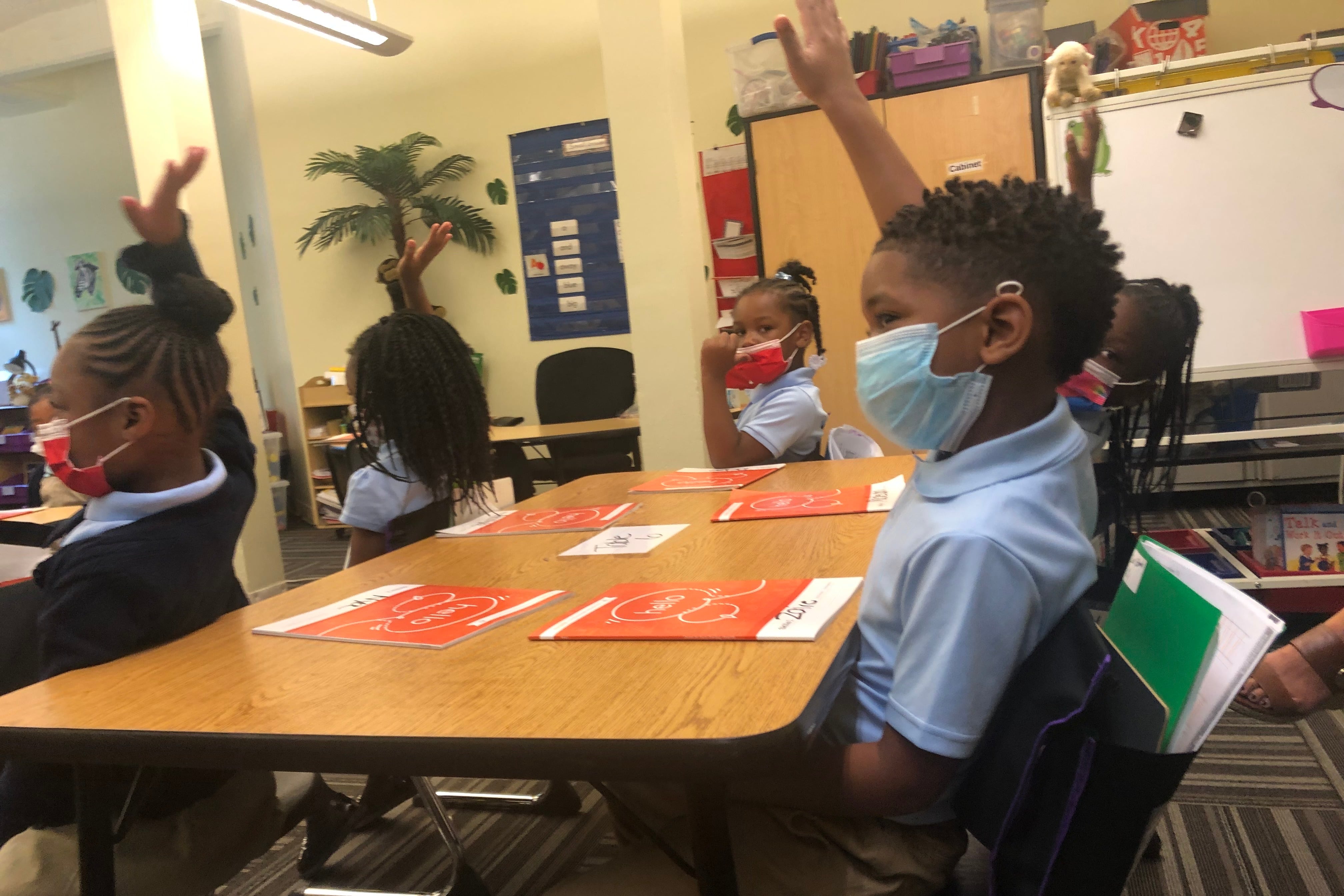The Detroit school district could lift its mask mandate sometime after its weeklong spring break ends April 3, provided the pandemic doesn’t surge after break and all students learning indoors are being tested weekly.
“We plan to consider the removal of the mask requirement between mid-March and mid-April,” Superintendent Nikolai Vitti told Chalkbeat Monday.
Detroit’s move would come well after many school districts in Michigan have already lifted their mask mandates. At the beginning of the school year, a majority of students were attending schools that required them to wear masks.
After an omicron-fueled surge of COVID cases in January caused schools to close campuses, Detroit’s case rates, hospitalizations, and deaths from COVID have steadily decreased. Last week, the federal Centers for Disease Control and Prevention issued new guidelines that said schools should mandate masks only when COVID cases and hospitalizations are categorized as high. Currently, Wayne County falls in the“medium” tier of case rates that the CDC does not recommend for mask mandates.
But in Detroit, even though case rates have declined, the district has other considerations.
“We currently agree with the Detroit Health Department that due to the city’s lower vaccination rates our mask removal date will be later than other districts’,” Vitti said.
Currently, about 48% of city residents have received at least one dose of the COVID vaccine, compared with 66% statewide.
Two factors will help the district determine if it makes sense to lift its mask requirement. One has to do with student testing. On Jan. 31, a new rule went into place requiring students to be tested weekly for COVID, with their parents’ consent. The district will move students who lack parental consent for testing to the district’s virtual school. That move hasn’t happened yet.
“We are reaching nearly 100% of students consenting to COVID testing and when that occurs, and non-consenting students are transferred to the virtual school, we will be in a better position to allow for optional mask wearing for employees and students,” Vitti said.
The district will also be looking closely at what happens after spring break, which lasts from March 28 to April 3.
“We also want to ensure that the city does not experience another surge after spring break,” Vitti said in a statement. “It would be difficult to remove the mask requirement and then enforce it once again if a surge occurs near spring break when staff and students are not in school. Once those two obstacles are cleared we would consider lifting the mask requirement.”
The district’s letter of agreement with the Detroit Federation of Teachers, which established mutual guidelines for the reopening of school buildings for the current school year, says the district will “abide with the most current legally required” orders, recommendations, and guidelines from the CDC and the state health department.







